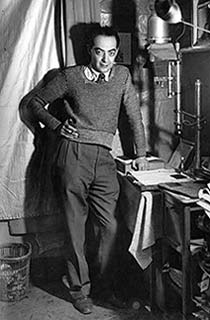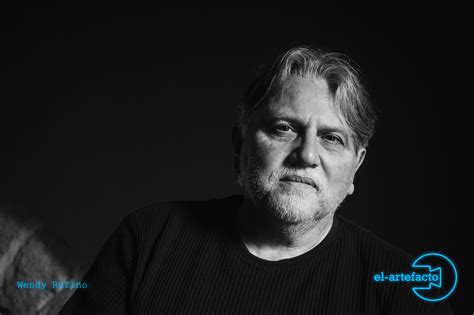A Quote by Christopher Alexander
Images in the 20th century had a unique power where image became divorced from reality, and often more important than reality... Buildings were judged - at least by members of our own profession - more by the way they looked in magazines than by the satisfaction people felt when using them.
Related Quotes
To say that a thing is imaginary is not to dispose of it in the realm of mind, for the imagination, or the image making faculty, is a very important part of our mental functioning. An image formed by the imagination is a reality from the point of view of psychology; it is quite true that it has no physical existence, but are we going to limit reality to that which is material? We shall be far out of our reckoning if we do, for mental images are potent things, and although they do not actually exist on the physical plane, they influence it far more than most people suspect.
We don't live in a shared reality, we each live in a reality of our own, and causing upset is often the price of trying to reach each other. It's always easier to dismiss other people than to go through the awkward and time consuming process of understanding them. We have given 'taking offense' a social status it doesn't deserve: it's not much more than a way of avoiding difficult conversations.
My images were surreal simply in the sense that my vision brought out the fantastic dimension of reality. My only aim was to express reality, for there is nothing more surreal than reality itself. If reality fails to fill us with wonder, it is because we have fallen into the habit of seeing it as ordinary.
I was really interested in 20th century communalism and alternative communities, the boom of communes in the 60s and 70s. That led me back to the 19th century. I was shocked to find what I would describe as far more utopian ideas in the 19th century than in the 20th century. Not only were the ideas so extreme, but surprising people were adopting them.
Reality became for me a problem after my experience with LSD. Before, I had believed there was only one reality, the reality of everyday life. Just one true reality and the rest was imagination and was not real. But under the influence of LSD, I entered into realities which were as real and even more real than the one of everyday. And I thought about the nature of reality and I got some deeper insights.
More girls were killed in the last 50 years, precisely because they were girls, than men killed in all the wars in the 20th century. More girls are killed in this routine gendercide in any one decade than people were slaughtered in all the genocides of the 20th century. The equivalent of 5 jumbo jets worth of women die in labor each day... life time risk of maternal death is 1,000x higher in a poor country than in the west. That should be an international scandal.
The ordinary man is living a very abnormal life, because his values are upside down. Money is more important than meditation; logic is more important than love; mind is more important than heart; power over others is more important than power over one's own being. Mundane things are more important than finding some treasures which death cannot destroy.
The American citizen lives in a world where fantasy is more real than reality, where the image has more dignity than its original. We hardly dare face our bewilderment, because our ambiguous experience is so pleasantly irridescent, and the solace of belief in contrived reality is so thoroughly real. We have become eager accessories to the great hoaxes of the age. These are the hoaxes we play on ourselves.
Few things are more important at this time in history than for religious people to listen to the New Atheists as if these unbelievers were speaking with God's voice, because they are! The word "God" used to be identified with reality - indeed, ultimate reality. In all cultures and at all times, the divine was no mere person, but was a personification of reality.
One of the major changes in attitude that occurred in the world of art as we moved from the nineteenth into the twentieth century was that the twentieth century artist became more involved with personal expression than with celebrating exclusively the values of the society or the church. Along with this change came a broader acceptance of the belief that the artist can invent a reality that is more meaningful than the one that is literally given to the eye. I subscribe enthusiastically to this.
We know only what we do, what we make, what we construct; and all that we make, all that we construct, are realities. I call them images, not in Plato's sense (namely that they are only reflections of reality), but I hold that these images are the reality itself and that there is no reality beyond this reality except when in our creative process we change the images: then we have created new realities.
I've come to realize that I'm a image maker, not an object maker. Images come to me as photographs because I don't have any other way of express them. I have to translate everything into still or moving pictures. I've learned that reality is not important to me. In the end it is the representation of reality that I'm striving to capture.







































